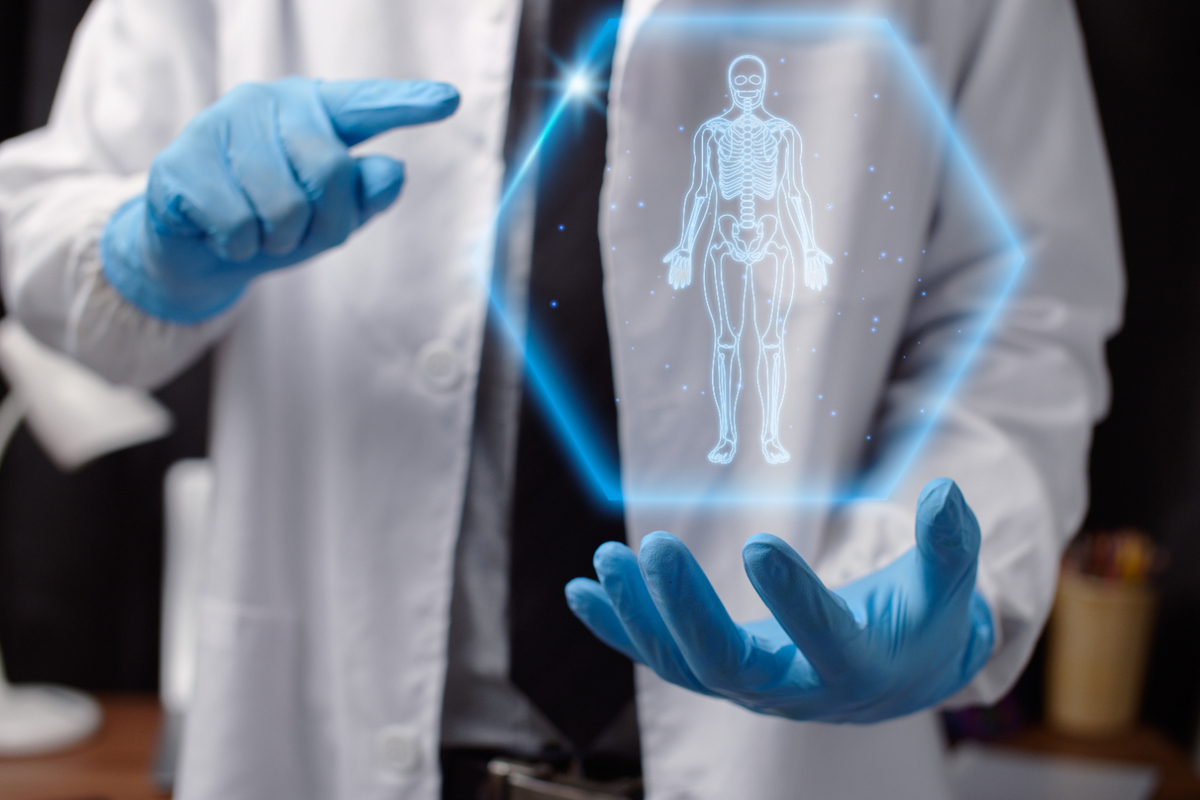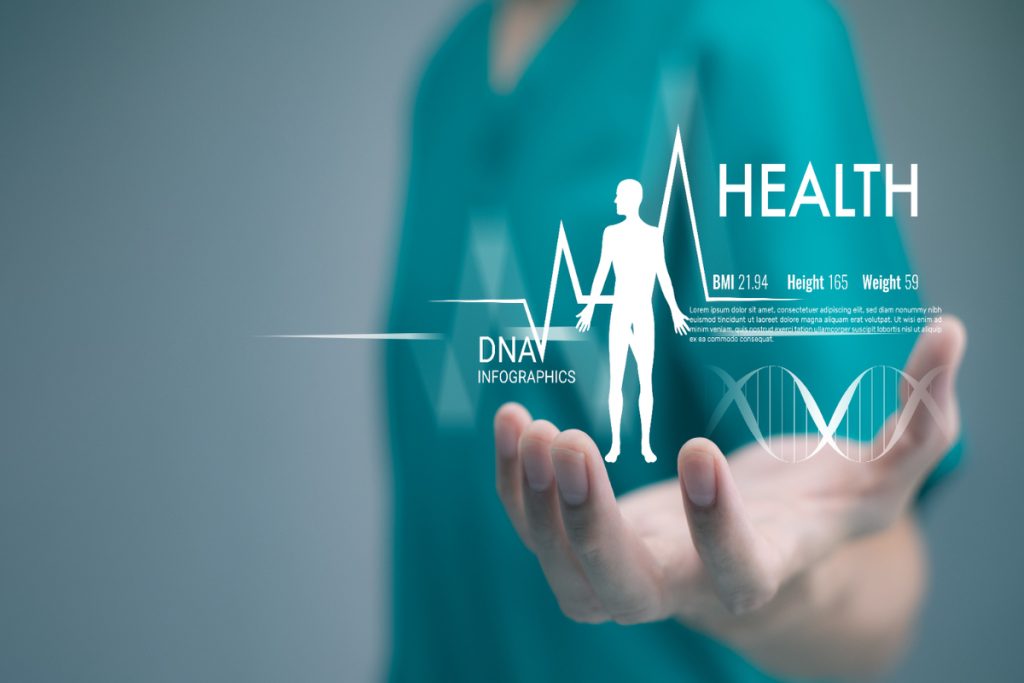AI in Diagnostics: A New Era of Precision
Artificial intelligence is revolutionizing the field of diagnostics, offering unprecedented accuracy and efficiency in identifying medical conditions. AI-powered algorithms analyze vast amounts of data, such as medical imaging and patient histories, to detect patterns that might be missed by human eyes. For example, AI tools in radiology can now identify early signs of cancer or cardiovascular disease with remarkable precision. This innovation not only improves diagnostic accuracy but also reduces the time it takes to reach a diagnosis, leading to faster treatment. The integration of AI into diagnostic workflows is enhancing the quality of care and demonstrating how technology can complement human expertise. These advancements underscore the critical role AI is playing in transforming health care into a more precise and proactive discipline.
Personalized Medicine Powered by AI
AI is driving the shift toward personalized medicine, tailoring treatments to individual patients based on their unique genetic makeup, lifestyle, and medical history. By analyzing complex datasets, AI systems can recommend targeted therapies that are more effective and have fewer side effects. This approach is particularly impactful in fields like oncology, where personalized cancer treatments are showing promising results. Furthermore, AI is being used to predict how patients will respond to certain medications, enabling physicians to make better-informed decisions. The result is a more customized approach to care that improves outcomes and enhances patient satisfaction. In the realm of health, personalized medicine powered by AI represents a major leap forward in delivering treatments that truly meet individual needs.

Enhancing Patient Monitoring with AI
AI is revolutionizing how patients are monitored, both in hospitals and at home. Wearable devices equipped with AI algorithms continuously track vital signs like heart rate, blood pressure, and oxygen levels, providing real-time insights into a patient’s condition. These tools allow for early detection of potential complications, enabling timely interventions that can save lives. In intensive care units, AI systems analyze data from multiple monitors to identify trends and alert medical staff to critical changes. At home, AI-powered apps and devices empower patients to manage chronic conditions more effectively, fostering independence and improving quality of life. By enhancing monitoring capabilities, AI is making health care more responsive and ensuring better outcomes for patients.
Streamlining Administrative Tasks
Administrative tasks have long been a burden on the health care system, consuming valuable time and resources. AI is alleviating this strain by automating repetitive processes such as scheduling, billing, and documentation. Natural language processing tools are being used to transcribe and organize clinical notes, reducing paperwork for medical professionals. AI-powered chatbots are also assisting patients with appointment bookings and answering frequently asked questions, improving efficiency and patient satisfaction. By streamlining these administrative functions, AI allows health care providers to focus more on patient care, enhancing the overall delivery of services. This shift is helping to create a more efficient and patient-centered health care system.
AI in Drug Discovery
AI is accelerating the process of drug discovery, significantly reducing the time and cost required to develop new treatments. Machine learning algorithms analyze complex biological data to identify potential drug candidates and predict their effectiveness. This approach has already led to breakthroughs in developing therapies for conditions like Alzheimer’s and rare genetic disorders. AI also plays a role in optimizing clinical trials by identifying suitable participants and predicting trial outcomes. These advancements are transforming the pharmaceutical industry and offering hope for faster, more effective treatments for various diseases. In the context of health, AI-driven drug discovery represents a critical innovation that is reshaping the future of medicine.
AI-Assisted Surgery
Surgical procedures are being transformed by AI, which enhances precision, reduces risks, and improves patient outcomes. AI-powered robotic systems assist surgeons by providing real-time data and guidance during operations. These systems can analyze medical images and suggest optimal surgical paths, ensuring greater accuracy. Additionally, AI tools are being used to train surgeons through simulations, allowing them to practice complex procedures in a controlled environment. By integrating AI into the operating room, health care providers can achieve better results and reduce recovery times for patients. The role of AI in surgery highlights its potential to revolutionize health care by combining technology with human expertise.

AI for Mental Health Support
Mental health is benefiting significantly from AI innovations, with new tools designed to support emotional well-being. AI-powered chatbots and virtual therapists provide accessible and affordable mental health care, offering guidance and coping strategies for stress, anxiety, and depression. These tools use natural language processing to engage with users in meaningful conversations, simulating the experience of speaking with a human therapist. AI systems can also monitor behavioral patterns and provide early warnings of potential mental health crises, enabling timely interventions. By democratizing access to mental health resources, AI is breaking down barriers and promoting a more inclusive approach to care. The intersection of AI and mental health is proving to be a game-changer in addressing one of the most pressing issues of our time.
Conclusion
The integration of AI into health care is transforming the industry in profound ways, from diagnostics and personalized medicine to patient monitoring and mental health support. These innovations are enhancing precision, efficiency, and accessibility, ensuring better outcomes for patients and providers alike. As AI continues to evolve, its potential to revolutionize health care becomes even more evident, offering solutions to some of the most complex challenges in medicine. The future of health care is undeniably intertwined with AI, and this partnership promises to deliver a new era of smarter, more effective care for all.



